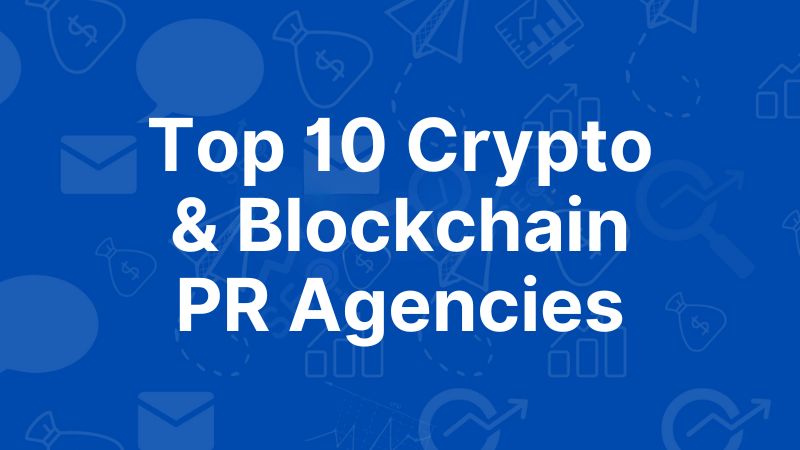Amazon is likely to be the next big powerhouse in the healthcare industry.
Selling on Amazon is a decision that should be carefully considered. Here are the pros and cons of selling on Amazon.
Introduction
Buying on Amazon is nothing new to any of us, but when it comes to selling, it’s a completely other story.
If you’re wondering if selling on Amazon will help you make enough money, you could have the right idea.
Amazon alone has 200 million Prime subscribers globally, and the number is steadily increasing. It means you’ll have the chance to promote and sell directly to over 200 million consumers on the platform alone.
Amazon offered small company owners optimism in 2019 when they released a press release stating that small companies on Amazon sold 4,000 things each minute. Given these amazing figures, it’s clear that shops all around the globe want to offer their items on Amazon.
However, since every coin has two sides, you must weigh all of the advantages and disadvantages of selling on Amazon.
Fortunately, we’ve put up a comprehensive guide to help you understand the big picture before digging in.
As a company owner, there are many reasons to sell on Amazon.
Before we look at Amazon’s structural advantages and disadvantages, we wanted to add this list of the top reasons why you should become an Amazon seller:
Work From Home Possibility
Many people choose to work from home because of the current environment and shifting perspectives.
However, if you want to build a physical shop, it will be practically hard to handle the company from your home.
With Amazon, you can work from home without having to leave the house.
Excellent Source of Passive Income
Even if you work full-time, you may become an Amazon seller. Listing your items on the internet may be a great method to generate a significant amount of passive money.
All you need is a little information and a methodical approach to organizing your calendar.
Simple Entrance
Sellers appreciate how simple it is to join Amazon’s seller programs. Dedicated programs such as Amazon FBM, FBA, 3P, Private label, and Amazon Vendors assist merchants in selecting the best plan for their listings.
Anyone with the necessary information may join their suiting’s software and begin listing items.
The advantages of selling on Amazon
Starting On Amazon Marketplace Is Relatively Simple
Starting out as an Amazon seller is quite simple. You won’t have to start from zero when it comes to creating your website.
Without any infrastructure, Amazon makes it simple to start selling your things to a wide audience. You’ll simply need to create the product listing and deliver the goods to an FBA warehouse to get started.
Because there are little to no barriers to accessing the market platform, one may begin selling right away without having to spend any more funds. Always keep in mind that being an Amazon Vendor requires you to wait till Amazon arrives to your location.
To become a seller, just complete out the necessary paperwork and begin ready for orders. You may sell in one of these two categories:
- A single seller with a maximum of 40 referrals
- A Pro-Seller with added benefits who can sell and list more than 40 goods.
There’s No Need To Stock Up
Amazon has 175 fulfillment centers throughout the world. You may immediately send your items after becoming a seller, and they will be placed in your inventory.
They package the order and deliver it to the clients as soon as you get it. As a result, as a seller, you may concentrate on your items rather than stocking and inventory management.
Register for the Amazon FBA program to take use of this service. Amazon charges a modest fee in exchange for allowing you to join Amazon Prime.
The Prime logo has the potential to become a major sales driver for your company.
Brand awareness
People are more attracted to Amazon than eBay and think of it as a sign of trust.
You can easily leverage this recognition to increase your profit by selling on Amazon. This global Brand awareness helps you get more customers each day.
Furthermore, if you follow all of the rules and pay great attention to your reviews, items, and listings, you will almost certainly rank first in the search results.
With enough popularity and positive feedback, your product listing will soon appear in the top searches with an Amazon choice banner.
Marketing Costs Are Fixed
You may simply piggyback on Amazon’s large client base as a vendor, given the previously established customer base.
You would have to spend to reach a few clients if you sold using a typical company approach. A vendor may attract thousands of customers with accurate and consumer-friendly listings with such a large prospective buyer base.
Depending on the specialization and depth of the listing’s category, many vendors have the good fortune of selling their things right away. That said, attracting and selling items may be done without spending a dollar on marketing.
We strongly advise you to use marketing strategies to boost your sales. If you have the money, you may advertise directly on Amazon. You have the option of using any of the following advertising channels:
- Featured Products
- Featured Products
- Ads on the Lockscreen
- Sponsored Exhibition
Protection against fraud
Because Amazon handles all payments and refunds, you are completely safe from being defrauded as a seller.
Furthermore, as a seller, you are obligated to get your commission in a timely manner. This safety net allows the seller to relax about payments and scams.
Even if you come across forgeries, such as phony orders, the team remains vigilant and bears the brunt of the loss.
International Expansion Prospects
Amazon has established itself as a worldwide trusted platform for vendors to sell their wares in foreign marketplaces.
Amazon has 13 sites for 13 nations, yet it shockingly delivers to over 100 countries with little hassle. The majority of customers are always on the lookout for new things that aren’t easily accessible in their own nations.
Such Amazon shoppers are prepared to spend the additional delivery costs in order to get their hands on the items. If you offer home décor or handcrafted items, it may be really beneficial. You may simply create a listing and start receiving orders.
Local payments, shipping operations, localized customer support, and logistics are all handled by Amazon. If you’re a merchant in Japan who wants to expand your consumer base to the United States, you can:
- Make a list of all the areas where you intend to grow.
- Create a great listing for each product by quickly registering in the market.
- Create or go through the shipping/fulfillment strategy.
- To oversee sales and keep inventory supplied, use Amazon’s different tools and dashboards.
Excellent for unique product sellers
It is widely acknowledged that Amazon is surrounded by rivals, such as merchants in popular categories. Because there are so many merchants selling the same goods, you must lower your pricing to attract customers.
However, if you’re currently selling your items at a minimal markup, this isn’t a realistic option. You will make little to no money after the Amazon commission and listing fees.
As a result, Amazon is a great place to sell unusual items that aren’t widely accessible elsewhere. There is no distributor, which means no one can purchase in quantity and list alongside you.
You get to choose the market price and get first dibs on the listings. We strongly advise you to sell such items since they will let you keep a solid commission even after Amazon distributes the revenues.
The disadvantages of selling on Amazon
Stealing of your listings without permission
Sellers may often steal your listing and upload counterfeit items under a legitimate ASIN. This fraud not only steals the seller’s sales, but also damages the seller’s reputation by generating unfavorable customer reviews.
Even if the issues are resolved, the negative ratings remain on the original listing, making it difficult to sell genuine goods. Many ads, generally because they are bogus, offer the same goods for a much cheaper price.
Because of a few fraudulent merchants, any prospective buyers would be hesitant to purchase anything from the whole category. One of the major scams is the theft of listings or the publishing of fraudulent product listings.
High commissions and fierce competition
When it comes to popular categories, Amazon has a very crowded market. Even seasoned merchants have seen their company suffer as a result of the influx of new sellers.
As a result, you should research the market before listing. Aside from the intense competition, Amazon charges a large fee, and free delivery may occasionally eat into the profit margins of vendors.
Sellers that do not get a large number of orders generally lose money and remove their ads.
As a result, sellers should be mindful of Amazon’s high commission rates as well as market competitiveness. They are typically better off selling unique and one-of-a-kind items that have no competitors.
However, it is important to realize that selling a new product is only useful for a few months, since once something is out into the market, individuals are quick to produce knock-offs, which will eventually harm your listings.
Amazon is in competition with its sellers.
Amazon has been accused of copying items from its best-selling merchants on multiple occasions.
You’ve probably seen their new Amazon Basics program, in which they’ve monopolized a big market by replicating and selling things that already exist.
Amazon Basics has had a much greater influence on vendors’ sales sheets than anybody could have predicted. Furthermore, buyers prefer Amazon to private vendors, which has benefitted Amazon from the beginning.
Data Feed System that is Comparatively Complex
Managing the whole data system might be difficult at times, particularly when they want it to follow their rules. Amazon, for example, need all updated data every single day.
Because Amazon has such rigorous and precise criteria, retailers must normally build their own Amazon feed from the ground up. Aside from that, all items should have ASIN numbers, and uploads should be done using Amazon-API.
Connecting to an API usually requires technical development, which is both time-consuming and expensive. A vendor would have to keep track of all of these while also monitoring inventory and listings.
Do the advantages outweigh the disadvantages?
Yes, the advantages outweigh the disadvantages. Every company model on the market has its own set of advantages and disadvantages. Similarly, Amazon includes a comprehensive list of advantages and disadvantages.
While many people consider of conventional business methods as the best option, Amazon sellers who don’t want to invest a lot of money but still want a safety net are welcome to join.
The disadvantages should not be feared or seen as setbacks; instead, you should learn about them and devise a flawless approach. If you’re a premium company, you should consider sticking to the conventional business strategy since luxury things don’t sell well on this platform.
If you are a small company, on the other hand, we strongly advise you to ask yourself the following questions before joining Amazon’s family.
- Is it possible for me to carefully follow Amazon’s laws and regulations?
- Is it possible for me to be flexible and competitive with my pricing?
- Is it possible for me to update my marketing plan on a regular basis?
- Can I afford to give Amazon a portion of my profit?
- Is it possible to sell anything that doesn’t have many listings?
If you answered yes to the following questions, we recommend that you begin selling your items on Amazon right now.
Conclusion
We hope our guide discussing the pros and The disadvantages of selling on Amazon was insightful and helpful.
As Amazon’s policies and listing algorithms change, make sure your marketing tactics are flexible. Don’t worry if Amazon isn’t the right platform for you.
There are other possibilities, such as eBay or Etsy. With a host like Shopify, you can even start selling your things on your website.
The “why not to sell on amazon” is a question that has been asked for years. In 2022, the pros and cons of selling on Amazon will be discussed in detail.
Frequently Asked Questions
Related Tags
- pros and cons of selling on amazon vs your own site
- amazon pros and cons buying
- pitfalls of selling on amazon
- is amazon fba worth it
- is selling on amazon worth it


